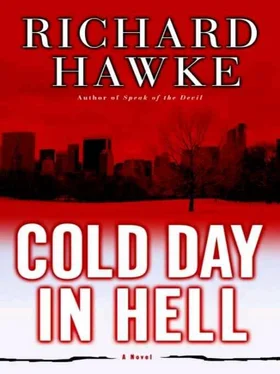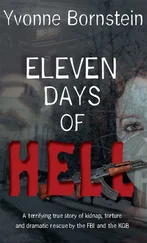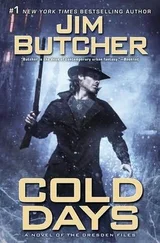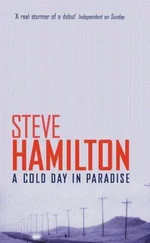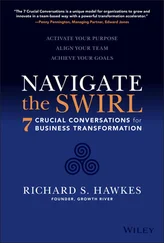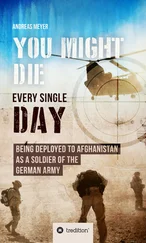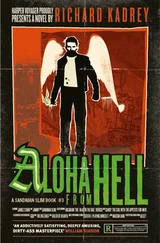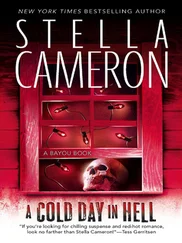She snatched up the kettle again and began pouring water into her cup.
“You forgot the teabag,” I said gently.
With lightning speed, she rattled the kettle to the stove, snatched up the teacup, and smashed it against the side of the sink. She was left holding the broken cup handle, attached to nothing. She threw that into the sink as well.
“You should just go. Really. Go. This is all now officially very stupid. Just go to your stupid funeral. Do whatever it is you need to do. Just do me a fucking favor, will you, and don’t come home dead.”
THE FRIENDS MEETING that Robin had attended was at the old Quaker meetinghouse on the edge of Stuyvesant Park, off East Fifteenth Street. Technically, the park wasn’t named for Peter Stuyvesant, early Manhattan ’s first director general, but for his wife, Judith. It would have rankled old Pete to see anything other than a Dutch Reformed church built on land that was originally part of the Stuyvesant homestead, but the Quakers had wisely waited until 189 years after the Dutchman’s death before building their house of worship, so they were spared the pugnacious peg leg’s fabled wrath.
The meeting room was a large rectangle capable of holding several hundred people. It was arranged with rows of pews facing the center of the room. A photograph of Robin Burrell was taped in the middle of one of the front pews. The photograph was black and white, a solemn posed shot dominated by Robin’s dark eyes. Painful to look at, difficult to turn away from. I took a seat in the pew opposite. As others came into the meetinghouse and took their seats, they folded their hands on their laps and closed their eyes for several minutes. At some point I attempted to follow suit-when in Rome -but an afterimage of Robin’s face from the photograph sizzled in the darkness, and I opened my eyes.
Quaker meetings are as much about silence as they are about talk. Maybe more about silence. At no signal that I could discern, the gentle shuffling and settling in were dispensed with and a stillness settled over the room. The meeting had commenced. There were close to a hundred people attending. Some remained with their eyes closed, but just as many sat with eyes open, gazing down at the floor or off into the middle distance.
After maybe ten minutes of the silence, a man rose to his feet. I placed him in his mid-thirties, with tortoiseshell glasses, a clipped brown mustache and a plaid sweater vest. His hands were clasped in front of him, and he rotated his head slowly as he spoke, taking in the room. The voice was soothing, smooth as butter.
“I’m struck by the affection for Robin that I am feeling here this morning. The enormous…affection.” Here he paused to make eye contact. Slowly. Methodically. Person by person. He continued, “I’m struck with the thought that under different circumstances, if another of us had passed on, Robin would have been here this morning, participating. Robin’s affection, her sense of concern, her caring, they would all be here in the air, just as our thoughts and concerns for her are now passing among us. I’m struck by that thought. What I’m struck by is not so much Robin’s absence but her presence. It’s in this way that I feel Robin is still very much with us. We think of her, as we are all doing this morning, and she is alive to us. The affection and the concern that Robin showed for all of us while she was still among us- that’s what I still feel. That Robin hasn’t died. And I suppose I’m hoping that in some way, maybe in this way, through us, Robin can continue to live on.”
He scanned the room again then sat back down and bowed his head. Seated next to him was a young Asian American woman with tears flowing freely down her cheeks. A minute later, a large, fleshy, red-haired woman got to her feet and cleared her throat. “Robin used to always ask me how Pepper was doing. Some of you know Pepper got hit by a taxi in August. You can still tell when I take him out for his walks. His hips aren’t right anymore. He walks funny. It was the best they could do at the hospital. I mean the animal hospital. Anyway, um, Robin, she always asked about him. It was real…It was nice of her.”
She began to blush, and she sat back down. Only a few seconds passed before another person stood up and muttered a few sentences about God knowing more than we do. Others followed. Most of the messages were brief. A thought. An aphorism. A prayer. One middle-aged man stood up and started to tell a story about him and Robin rushing around the neighborhood getting donuts before one of the meetings. There didn’t seem any real point to the story, and midway through it, the man’s voice cracked and he sat back down.
A long silence followed, and I found myself-as I’m sure others were doing-staring once more at the photograph taped onto the pew. I didn’t want it to happen, but as I sat looking at the picture, the crime-scene photographs I’d seen in Joe Gallo’s office-the cruel, garish, mindless damage-shimmered into focus in my head, interfering with the simple solemn face in front of me. Sometimes I hate my job.
At the conclusion of the meeting, a coffee-and-pastries reception was held in a small gymnasium in the adjoining building. The red-haired woman who had spoken about her dog was standing behind one of the folding tables, feeding pastries onto several plastic trays. As I took one of the Styrofoam cups of coffee, she gave me a sugary smile.
“Hello. I don’t know you. Are you new to meeting?”
“I’m…Yes. This is my first time.”
“First time at all or first time here?”
“First time at all.”
She asked, “Were you a friend of Robin’s? We expected some of her friends might show up this morning.”
“I knew her, yes,” I said.
She shook her head sadly. “Isn’t it awful? I just can’t believe she’s gone.”
An elderly couple angled in for some pastries, and I moved over to give them room.
“What about you?” I asked. “Did you know Robin well?”
“Me? Not really. I mean, not outside of meeting or anything. There was one time Robin and I did end up at the same brunch afterward. But, you know. By coincidence.”
I indicated the people milling about. “What about some of the other people? She must have had some close friends here?”
The woman smiled again. “We’re all close Friends.”
I got her meaning. “Right. Of course. I don’t mean strictly in the Quaker sense.”
Other people were coming in for the sweets and coffee. I was still blocking access, so I slipped around behind the table. The red-haired woman handed me a box of pastries. “You just volunteered. I’m Martha, by the way.”
“Fritz.”
I laid out the pastries on one of the plastic trays just as a large lumpish man came by. He moved like a lava flow, nabbing three pastries at once and continuing on without a word. “Lots of people here were very fond of Robin,” Martha continued. “I guess you could tell that. The community really rallied around her when all that horrible trial stuff began happening. Except we didn’t see a lot of Robin during most of that. She wasn’t going out much, it was too big a hassle for her. The way she was being hounded. But we’d get word how she was doing from Edward.”
“Edward?”
“He’s the elder who spoke about Robin in meeting.”
“The guy with the mustache?”
“Yes.”
I scanned the crowd and found the man in question standing in conversation with the Asian American woman who’d been crying off and on during the meeting. Another man was standing just behind them, leaning against the wall with his thumbs hooked into the belt loops of his faded jeans, as if hoping to be mistaken for James Dean. He was about my height and build, with longish stringy blond hair, a narrow nose and a noticeably small mouth. There was a slightly rodentlike quality to his face, and he appeared to be following the conversation closely, though I couldn’t tell if he was part of it or merely eavesdropping. The man named Edward was impassioned, punctuating his words by slapping the back of one hand down into the other, over and over.
Читать дальше
